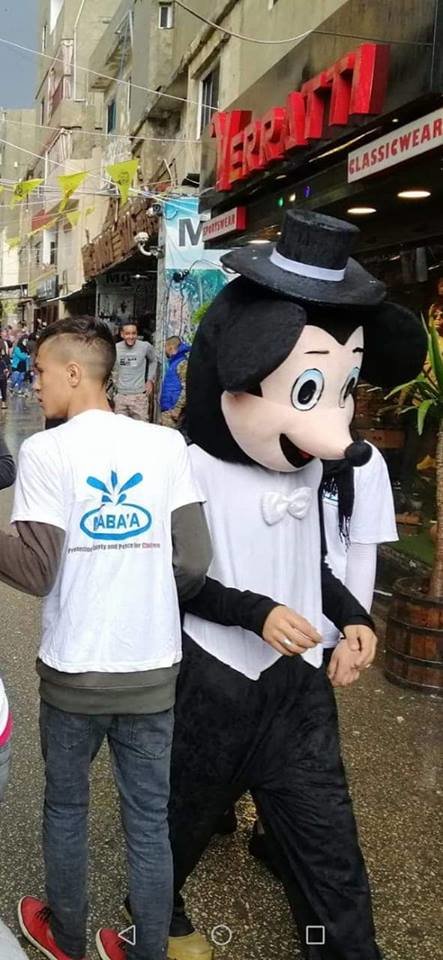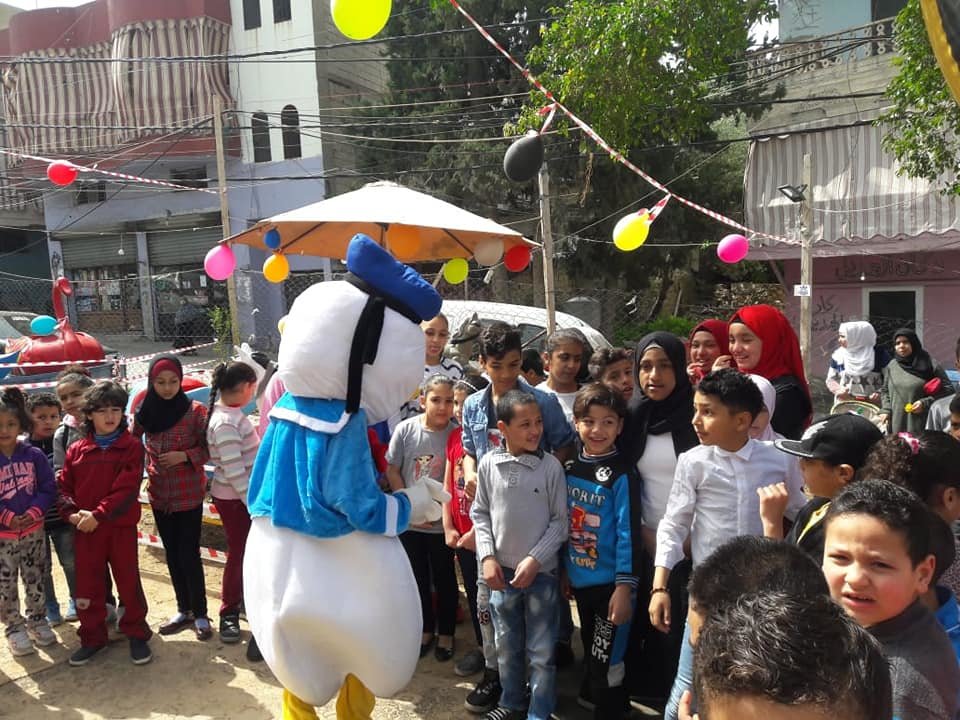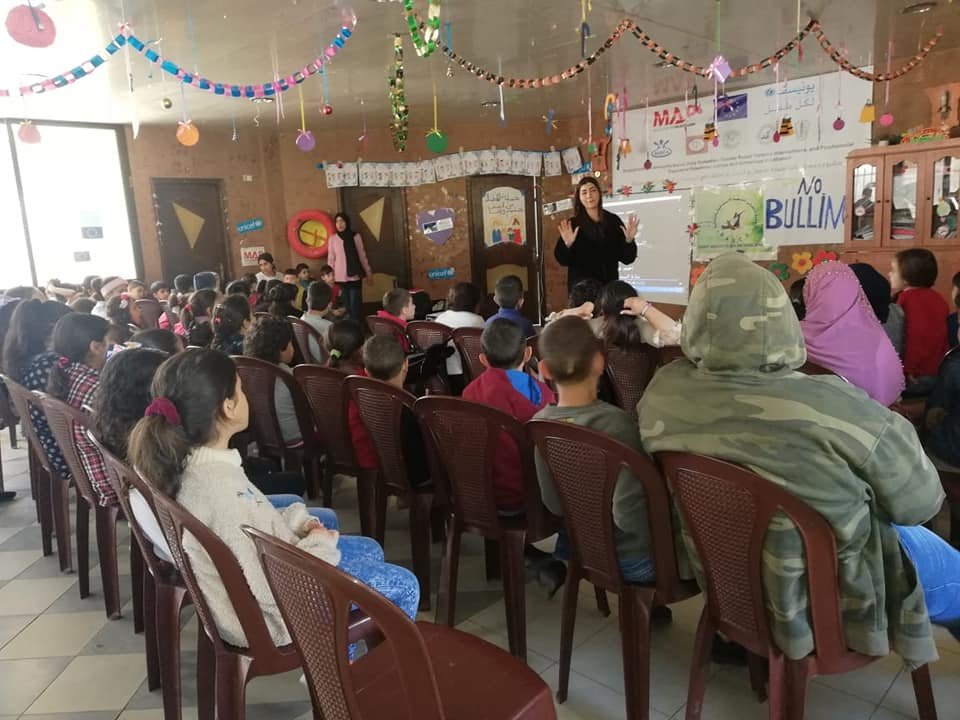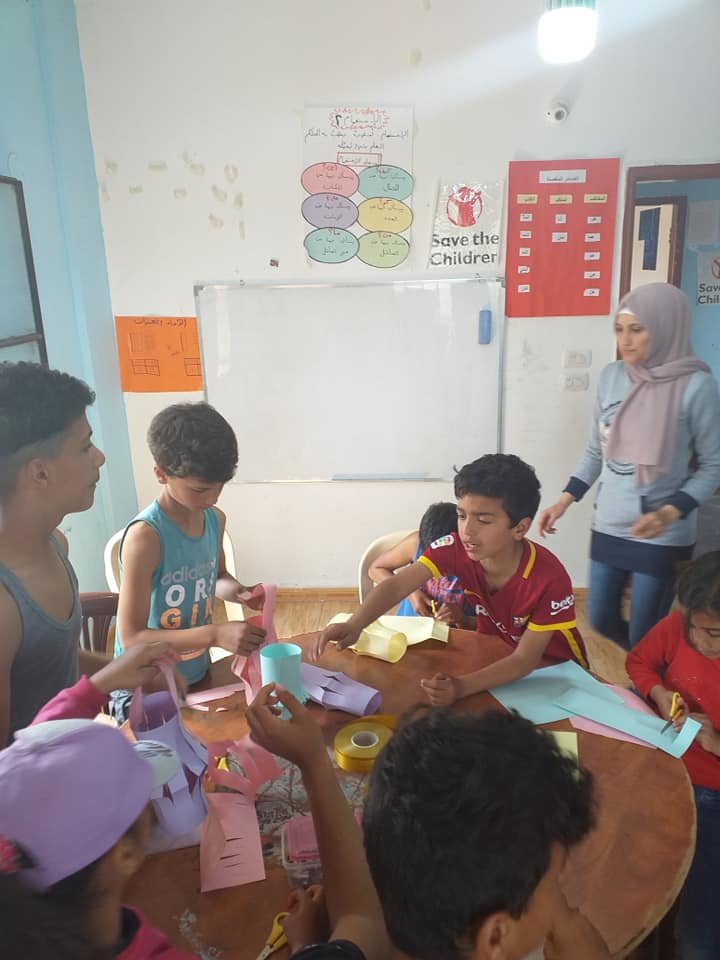By Hiba Hamzi | Program Coordinator
Background during and after the implementation of the project; In Lebanon, the arrival of additional refugees is exacerbating the resources of communities, and stretching the services supported by the Government of Lebanon and UNRWA. Palestinian refugees are mostly hosted by the poorest communities in Lebanon. The average age of those registered with UNRWA is 25, and 51 per cent are women, 26 per cent are school age children and 15 per cent are infants[1]. As in the beginning of the Syrian crises Headed households did not accompany their families when they flee out of Syria where fathers decided to stay inside Syria with their adolescent males.
The Palestinian community in Lebanon is young with 36% of the total population of Palestinian refugees from Lebanon (PRL) aged between 14 and 35 years and for Palestinian refugees from Syria (PRS) the number is 37%. As of October 2018, the Government of Lebanon (GoL) estimates that the country hosts 1.5 million Syrians who have fled the conflict in Syria (including 950,3341 registered as refugees with UNHCR, of which 25.2% are women, 19.4% men, 27.1% are girls, 28.3% are boys with diverse backgrounds and specific needs), along with 28,800 Palestinian refugees from Syria (PRS) and a preexisting population of an estimated 180,000 Palestinian refugees from Lebanon (PRL) living in 12 camps and 156 gatherings.
Palestinian children in Lebanon suffer from multiple risk factors and disadvantages that impede their development. Palestinian refugee children in Lebanon form a distinct and disadvantaged sector, characterized not only by extreme poverty, but also by a mix of low status, limited opportunities, increased vulnerability, and social exclusion. High levels of stress and anxiety negatively affect their healthy growth and development.
In addition, camp residents are now facing even more difficulties in day-to-day life, including crowded living conditions, unemployment and outbreaks of violence. Major problems the camp faces include
The phenomena of recruiting children inside the Palestinian camps started to be observed since the start of the Syrian crises and the arrival of the first wave of Syrian refugees to Lebanon mid of 2011, due to the burden of economic, social and political problems.
Naba’a Achievements; During the last period,
Improve access for Palestine refugee children and adolescents (PRS and PRL) to quality non-formal and informal education in schools, targeting children inside and outside schools. It is implemented in ten Palestinian refugees camps and gatherings (Rashydieh, El Buss, Ein El Helweh camp, Qasmieh, Mia w Mia, Borj Al Shamali, Baddawi, Naher El Bared, Bar Elias, Al Jalil), targeting 1000 children including PRS children aged 6-18 years old inside UNRWA schools Where the children will be provided with quality education and teaching, therefore, the level of education and learning capabilities inside UNRWA schools will be enhanced.
- 900 school-aged boys and girls have improved access to formal and non-formal education opportunities
- Home visit have been implemented to follow up the children inside their home . Through home visits we addressed the most highlighted problems that the children are suffering them and how to solve their problems and prioritize their needs.
- An Involvement of a large number of children and parents living in the camps has been occurred in alignment with targeted activities that enhance their social skills and encourage them to claim for their rights by using the advocacy techniques and methodology.
- Furthermore, children were involved in composing a message calling for children's rights and inviting the local community to advocate for these rights. In north area, a preparatory workshop that resides on peer to peer and advocacy campaign has been conducted in 9 locations targeted 90 girls as well. This workshop was divided into theoretical and practical parts with 20% and 80% consequently and the aim behind this tactic is to ensure the concept of learning through doing.
- 70 children whom finalized the ALP program (40 females and 30 males) have been referred to be enrolled in public schools as well as 6 females and 2 males have been enrolled in UNRWA schools. In addition, a child friendly classroom code of conduct as well as a complaint mechanism have been developed in participation of children, which give them opportunity to express their opinion and their concerns.
Case Study;
Code: 342018
Date of Birth: 2002
Gender: Male
Nationality: Palestinian refugee from Lebanon
Grade and School: grade eight – Al Omania School
Hobbies: Football
Family members: 3
Arrangement among his brothers: 1
An Overall idea about the child's life: The child does not like the school as well as he doesn't go to it only once a week and he makes problems with his classmates and he expelled from the school.
As in recent months, he has never studied and failed because of his repeated absence and not studying the required materials.
The child used to study at Deir al-Qasi School and was expelled from it in grade seven due to his repeated failure, and that's why his parents had to move him to the Omania School but he also did not like the school and wanted to leave it, so he used to make problems with the students and then with the teachers. Hence, he started not to attend classes and ignored his studies as well.
The school principal sent a warning to the parents, knowing that his parents have made several attempts in order to support him at the institute as well as they provided him with the opportunity to have a private tutoring but he still does not want to study.
Interest of the child: A child likes to learn a career in electrifying cars or computer programming and this is what he is seeking for. So, he went to work in one of the electric car shops to learn and gain experience. At home he tries to learn how to program a computer through YouTube, which makes him sit on the phone a lot to watch how to do programming and to repair phones.
- Economic situation: it is good since the father works in a charitable organization and receives a salary which can meet all the needs of the family and home.
- Health status: it is good since the child does not suffer from any diseases as his physical structure is good as well.
The relationship between the child with his father: it is good and he goes with him to the work sometimes in order to help him in the activities he carry out.
The relationship between the child and his mother: it is very good, since the child is the mother's friend and he helps her with stuff in the house.
The relationship between the child and his brothers: It is good, and he plays with them and they share the same room for sleeping and studying.
- The problems in which the child is suffering from: school dropout
The child did not go to school for more than two months because he didn't succeed in the first semester and he thought that he also will be going to fail so he did not want to go back to school.
Raising the awareness of parents with regard to the importance of paying attention and taking care to their child's tendencies in terms of teaching him a profession he likes is better than forcing him to remain in a school and do not want to attend.
Data collection: Parents - Child
-Intervention:
• A session with the child.
• A session with parents.
• Awareness workshops for parents.
• Awareness workshops for children that reside on the importance of education.
- Recommendations:
• Follow-up of the child in individual sessions.
• Follow-up parents with regard to the positive parenting methodology.
• The Referral of the child to acquire / learn a career at a specialized institute.
[1] Palestinian Refugee children and women (Lebanon – Jordan) – UNICEF
Links:
By Hiba Hamzi | Program Coordinator
By Hiba | Hamzi
Project reports on GlobalGiving are posted directly to globalgiving.org by Project Leaders as they are completed, generally every 3-4 months. To protect the integrity of these documents, GlobalGiving does not alter them; therefore you may find some language or formatting issues.
If you donate to this project or have donated to this project, you can receive an email when this project posts a report. You can also subscribe for reports without donating.
Support this important cause by creating a personalized fundraising page.
Start a Fundraiser


